Please take this as a brief EXAMPLE of what you should accomplish, and be aware that you may encounter some issues while moving on with your project, because sometimes document.location can be a bit tricky to retrieve.
That apart, the code:
// ==UserScript==
// @name My Fancy New Userscript
// @namespace http://use.i.E.your.homepage/
// @version 0.1
// @description enter something useful
// @match *://*/*
// @copyright 2015+, You
// ==/UserScript==
var storage = (function(win){
var localDrive = win.localStorage;
return {
save: function (/* <string> */ key, /* <string | JSONstringified object> */ value) {
localDrive.setItem(key, value);
},
destroy: function (/* <string> */ key) {
return localDrive.removeItem(key) ? true : false;
},
get: function (/* <string> */ key) {
return localDrive.getItem(key) == '' || localDrive.getItem(key) == null ? false : localDrive.getItem(key);
}
}
})(window);
window.storage = storage;
document.addEventListener("DOMContentLoaded", function(e) {
// Dom ready, start:
// Check whether the array exists or not :
if (!storage.get("myDataList")) {
storage.save("myDataList", JSON.stringify(
[{
'href' : document.location.href,
'location' : document.location,
'test1' : 'test',
'test2' : 'test2'
}]
)
);
}
else {
// If exists, log every single object:
var currentStorageList = JSON.parse(storage.get("myDataList"));
for (var i = 0; i < currentStorageList.length; ++i) {
console.log(currentStorageList[i]);
}
}
// Check whether this element exists in the current list, else add :
var currentStorageList = JSON.parse(storage.get("myDataList"));
var elementExists = currentStorageList.some(function(el,i,arr) {
return el.href === document.location.href;
});
if (!elementExists) {
console.log("current elements doesn't exist, let's push it!");
storage.save("myDataList", JSON.stringify(JSON.parse(storage.get("myDataList")).push({
'href' : document.location.href,
'location' : document.location,
'test1' : 'test',
'test2' : 'test2'
})));
}
});
This is pure javascript, since I didn't see you using jQuery.
I have provided there:
- A comfortable DOM object (storage) with three main methods: save (stores key => value, where value must be a string or a json stringified element, because you can't store arrays in local storage), get (get from key) and destroy (from key).
- A constructor right at the beginning of domready: if the key holding the elements does NOT exist, it will create it and fill with the current document location, identifying it using the document's href.
- A few examples to work with in order to save / retrieve what you need.
Please note that this is just an example (it does work, though).
Also, in your tampermonkey script settings, don't forget to set it to run at document-end.
The output on xkcd (for testing) is this:

http://prntscr.com/784zw7 (picture direct link)
Hope this is helpful for your project ;)

